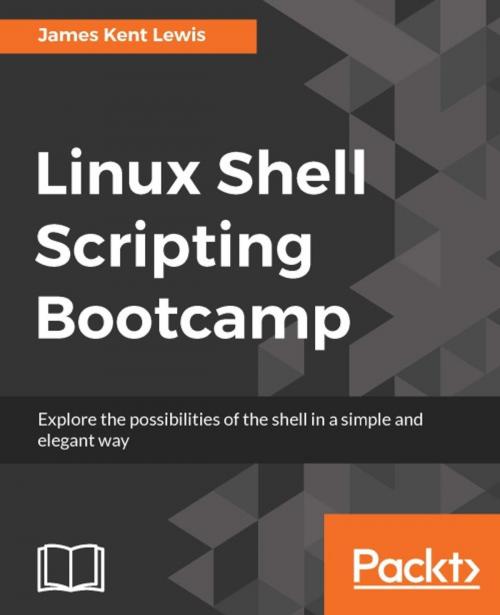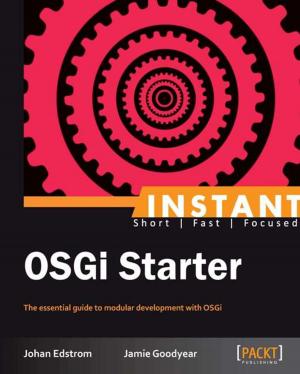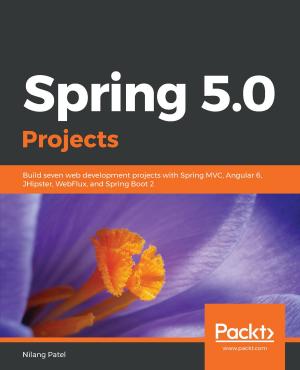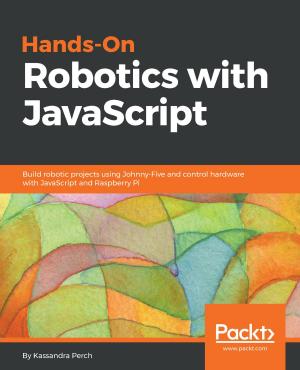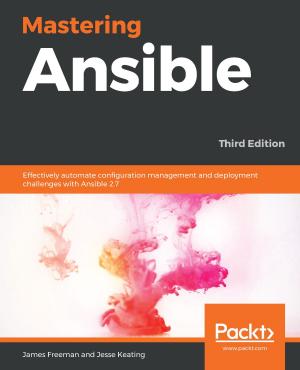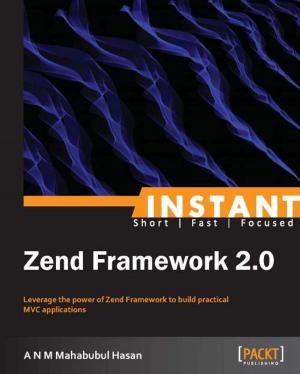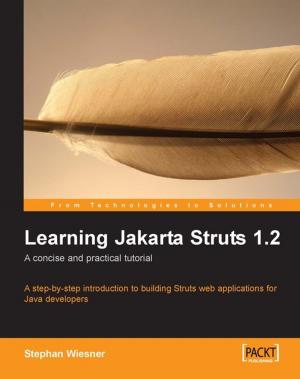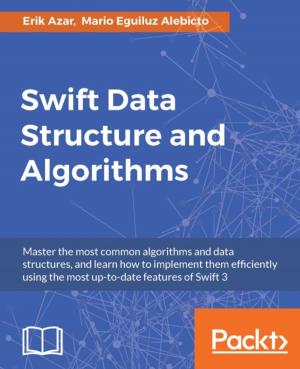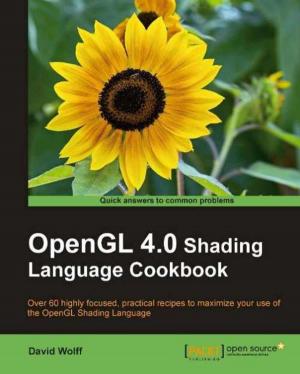Linux Shell Scripting Bootcamp
Nonfiction, Computers, Operating Systems, Unix, Linux, Networking & Communications| Author: | James Kent Lewis | ISBN: | 9781787125414 |
| Publisher: | Packt Publishing | Publication: | July 20, 2017 |
| Imprint: | Packt Publishing | Language: | English |
| Author: | James Kent Lewis |
| ISBN: | 9781787125414 |
| Publisher: | Packt Publishing |
| Publication: | July 20, 2017 |
| Imprint: | Packt Publishing |
| Language: | English |
A quick and straightforward approach to writing shell scripts to accomplish different types of tasks on a Linux system.
About This Book
- Understand expressions and variables and how to use them practically
- Familiarize yourself with the various text filtering tools available in Linux
- A fast-paced and concise guide that gets you well versed with linux shell scripting.
Who This Book Is For
This book is for both GNU/Linux users who want to do amazing things with the shell and for advanced users looking for ways to make their lives with the shell more productive.
What You Will Learn
- Get acquainted with the basics of a shell script to serve as a refresher for more advanced topics
- Learn different ways to create and run a script
- Discuss the passing and verification of parameters, along with the verification of other items.
- Understand the different forms of conditions and loops, and go over the sleep command in detail
- Learn about different ways to handle the reporting of return codes
- Create an interactive script by reading the keyboard and use subroutines and interrupts
- Create scripts to perform backups and go over the use of encryption tools and checksums
- Use wget and curl in scripts to get data directly from the Internet
In Detail
Linux Shell Scripting Bootcamp is all about learning the essentials of script creation, validating parameters, and checking for the existence of files and other items needed by the script.
We will use scripts to explore iterative operations using loops and learn different types of loop statements, with their differences. Along with this, we will also create a numbered backup script for backup files.
Further, you will get well-versed with how variables work on a Linux system and how they relate to scripts. You'll also learn how to create and call subroutines in a script and create interactive scripts. The most important archive commands, zip and tar, are also discussed for performing backups. Later, you will dive deeper by understanding the use of wget and curl scripts and the use of checksum and file encryption in further chapters.
Finally, you will learn how to debug scripts and scripting best practices that will enable you to write a great code every time! By the end of the book, you will be able to write shell scripts that can dig data from the web and process it efficiently.
Style and approach
This book is all about fast and intensive learning. This means we don't waste time in helping readers get started. The new content is basically about filling in with highly-effective examples to build new things, solving problems in newer and unseen ways, and solving real-world examples.
A quick and straightforward approach to writing shell scripts to accomplish different types of tasks on a Linux system.
About This Book
- Understand expressions and variables and how to use them practically
- Familiarize yourself with the various text filtering tools available in Linux
- A fast-paced and concise guide that gets you well versed with linux shell scripting.
Who This Book Is For
This book is for both GNU/Linux users who want to do amazing things with the shell and for advanced users looking for ways to make their lives with the shell more productive.
What You Will Learn
- Get acquainted with the basics of a shell script to serve as a refresher for more advanced topics
- Learn different ways to create and run a script
- Discuss the passing and verification of parameters, along with the verification of other items.
- Understand the different forms of conditions and loops, and go over the sleep command in detail
- Learn about different ways to handle the reporting of return codes
- Create an interactive script by reading the keyboard and use subroutines and interrupts
- Create scripts to perform backups and go over the use of encryption tools and checksums
- Use wget and curl in scripts to get data directly from the Internet
In Detail
Linux Shell Scripting Bootcamp is all about learning the essentials of script creation, validating parameters, and checking for the existence of files and other items needed by the script.
We will use scripts to explore iterative operations using loops and learn different types of loop statements, with their differences. Along with this, we will also create a numbered backup script for backup files.
Further, you will get well-versed with how variables work on a Linux system and how they relate to scripts. You'll also learn how to create and call subroutines in a script and create interactive scripts. The most important archive commands, zip and tar, are also discussed for performing backups. Later, you will dive deeper by understanding the use of wget and curl scripts and the use of checksum and file encryption in further chapters.
Finally, you will learn how to debug scripts and scripting best practices that will enable you to write a great code every time! By the end of the book, you will be able to write shell scripts that can dig data from the web and process it efficiently.
Style and approach
This book is all about fast and intensive learning. This means we don't waste time in helping readers get started. The new content is basically about filling in with highly-effective examples to build new things, solving problems in newer and unseen ways, and solving real-world examples.
